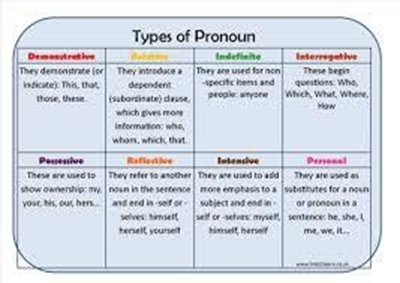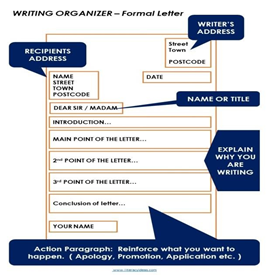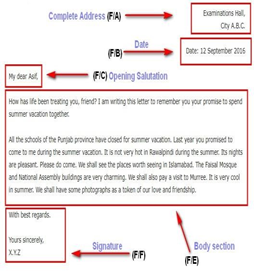Lesson Notes By Weeks and Term - Primary 6
TOPIC: Pronunciation, stress and intonation practice; Grammar: pronoun: Definition and types Writing: Features of formal and informal letters
TOPIC: Pronunciation, stress and intonation practice; Grammar: pronoun: Definition and types Writing: Features of formal and informal letters
WEEK: Four
CLASS: Basic six
SUBJECT: English Grammar
Writing: Features of formal and informal letters
BEHAVIOURAL OBJECTIVES: At the end of the lesson, pupils should be able to;
BUILDING A BACKGROUND: Pupils are familiar with intonation, pronouns and letters
INSTRUCTIONAL MATERIAL: Pictures, charts and textbook
REFERENCE MATERIAL: Nigeria Primary English Pupils’Book to
CONTENT:
Remember that stress is the force or loudness with which a part of a word is pronounced. Many words of two syllables come from one-syllable words. For example, the word ‘singer’ comes from the word ‘sing’ and the word ‘enlarge’ comes from the word ‘large’. In these two-syllable words, the stress is on the syllable of the original word. In the examples below, O and/or capital letters can be used to show the stressed syllable and o the unstressed syllable.
Here are some more examples:
Nouns and adjectives (Oo) Verbs (oO)
Boy – BOYhood Own – disOWN
Star – STARdom Take – reTAKE
friend – FRIENDship
miss – dismiss
Most two-syllable nouns and adjectives have stress on the first syllable, even if they are not formed from an original one-syllable word. For example, ‘pastor’ is not formed from the original word ‘past’, but it still has the stress pattern Oo.
A pronoun is a word used instead of a noun. Examples are: he, she, they, my, their, our e.t.c


FORMAL LETTER

INFORMAL LETTER
EVALUATION: Pupils are evaluated thus:
© Lesson Notes All Rights Reserved 2023